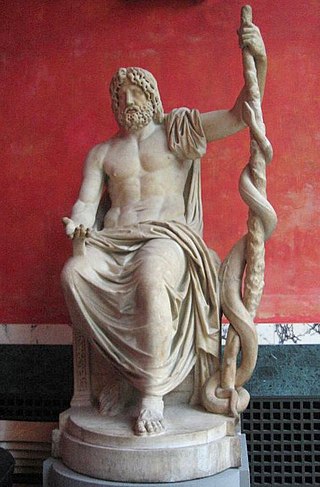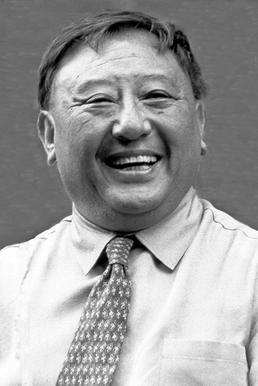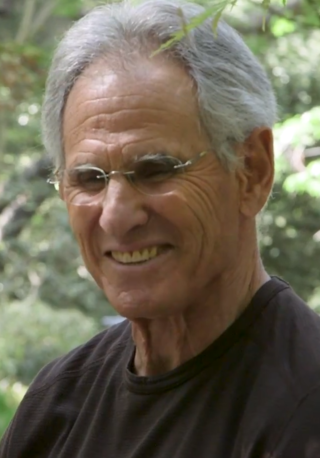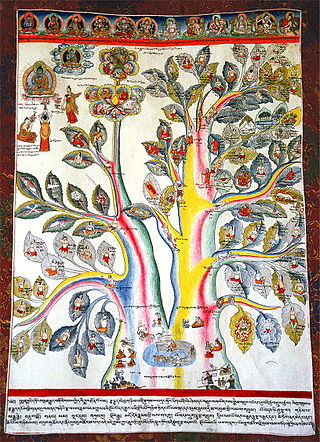
Medicine is the science and practice of caring for a patient, managing the diagnosis, prognosis, prevention, treatment, palliation of their injury or disease, and promoting their health. Medicine encompasses a variety of health care practices evolved to maintain and restore health by the prevention and treatment of illness. Contemporary medicine applies biomedical sciences, biomedical research, genetics, and medical technology to diagnose, treat, and prevent injury and disease, typically through pharmaceuticals or surgery, but also through therapies as diverse as psychotherapy, external splints and traction, medical devices, biologics, and ionizing radiation, amongst others.

The Gelug is the newest of the four major schools of Tibetan Buddhism. It was founded by Je Tsongkhapa (1357–1419), a Tibetan philosopher, tantric yogi and lama and further expanded and developed by his disciples.

Ayurveda is an alternative medicine system with historical roots in the Indian subcontinent. The theory and practice of Ayurveda is pseudoscientific. Ayurveda is heavily practiced in India and Nepal, where around 80% of the population report using it.

Kyabje Nawang Gehlek Rimpoche was a Tibetan Buddhist lama born in Lhasa, Tibet on October 26, 1939. His personal name was Gelek; kyabje and rimpoche are titles meaning "teacher" and "precious," respectively; he is known to Tibetans as Nyakre Khentrul Rinpoche. He was a tulku, an incarnate lama of Drepung Monastic University, where he received the highest scholastic degree of Geshe Lharampa, equivalent to a PhD, at the exceptionally young age of 20. His father was the 10th Demo Rinpoche and his uncle was the 13th Dalai Lama, Thubten Gyatso.

Chöje Akong Tulku Rinpoche was a tulku in the Kagyu school of Tibetan Buddhism and co-founder of the Samye Ling Monastery in Scotland, Tara Rokpa Therapy & ROKPA International Charity.

Jon Kabat-Zinn is an American professor emeritus of medicine and the creator of the 'Stress Reduction Clinic' and the 'Center for Mindfulness in Medicine, Health Care, and Society' at the University of Massachusetts Medical School. Kabat-Zinn was a student of Zen Buddhist teachers such as Philip Kapleau, Thich Nhat Hanh, and Seung Sahn, and a founding member of Cambridge Zen Center. His practice of yoga and studies with Buddhist teachers led him to integrate their teachings with scientific findings. He teaches mindfulness, which he says can help people cope with stress, anxiety, pain, and illness. The stress reduction program created by Kabat-Zinn, mindfulness-based stress reduction (MBSR), is offered by medical centers, hospitals, and health maintenance organizations, and is described in his book Full Catastrophe Living.

The New Kadampa Tradition – International Kadampa Buddhist Union (NKT—IKBU) is a global Buddhist new religious movement founded by Kelsang Gyatso in England in 1991. In 2003 the words "International Kadampa Buddhist Union" (IKBU) were added to the original name "New Kadampa Tradition". The NKT-IKBU is an international organisation registered in England as a charitable, or non-profit, company. It currently lists more than 200 centres and around 900 branch classes/study groups in 40 countries. The BBC describe the New Kadampa Tradition as "one of the major Buddhist schools in the UK, founded by the Tibetan-born Geshe Kelsang Gyatso."

Traditional Tibetan medicine, also known as Sowa-Rigpa medicine, is a centuries-old traditional medical system that employs a complex approach to diagnosis, incorporating techniques such as pulse analysis and urinalysis, and utilizes behavior and dietary modification, medicines composed of natural materials and physical therapies to treat illness.

The Tree of physiology is a Tibetan Thangka depicting human physiology and certain pathological transformations.

Desi Sangye Gyatso (1653–1705) was the sixth regent (desi) of the 5th Dalai Lama (1617–1682) in the Ganden Phodrang government. He founded the School of Medicine and Astrology called Men-Tsee-Khang on Chagpori in 1694 and wrote the Blue Beryl treatise. His name is sometimes written as Sangye Gyamtso and Sans-rGyas rGya-mTsho
Bachelor of Ayurvedic Medicine and Surgery (B.A.M.S.) is a professional degree focused on Ayurveda offered in India, Nepal, Bangladesh, and Sri Lanka.
Thekchen Choling is a registered Buddhist organisation in the Republic of Singapore. The organisation was started in 2001 by Singha Thekchen Rinpoche and a group of his initial disciples. The organisation promotes non-sectarian Buddhism, emphasizing understanding of Theravada and Mahayana teachings. TCCL is committed to the Rime (non-sectarian) movement within Tibetan Buddhism though it is of the Gelug tradition. The primary practices and teachings of this temple are from Guru Rinpoche lineage and Lama Tsongkapa lineage.

The 14th Dalai Lama, known as Gyalwa Rinpoche to the Tibetan people, is the current Dalai Lama. He is the highest spiritual leader and head of the country of Tibet. He was born on 6 July 1935, or in the Tibetan calendar, in the Wood-Pig Year, 5th month, 5th day. He is considered a living Bodhisattva, specifically, an emanation of Avalokiteśvara in Sanskrit and Chenrezig in Tibetan. He is also the leader and a monk of the Gelug school, the newest school of Tibetan Buddhism, formally headed by the Ganden Tripa. The central government of Tibet, the Ganden Phodrang, invested the Dalai Lama with temporal duties until his exile in 1959.

Men-Tsee-Khang, also known as Tibetan Medical and Astro Institute, is a charitable institution based in Dharamshala, Himachal Pradesh, India. The institute was founded by the 13th Dalai Lama, in Lhasa in 1916. In the aftermath of the Chinese occupation of Tibet, the 14th Dalai Lama came to India where he re-established the institution in 1961 with the following missions:
Traditional Cambodian medicine comprise several traditional medicine systems in Cambodia.

Lobsang Dolma Khangkar also called Lobsang Dolma or Ama Lobsang Dolma was a 13th generation doctor of traditional Tibetan medicine. She travelled with the Dalai Lama in 1959 from Tibet to India. She was the First woman to become chief physician of the Men-Tsee-Khang. She and the others carried her daughters on their backs into what is now Dharamsala, India: Tsewang Dolkar Khangkar and Pasang Gyalmo Khangkar, succeeded her in the family line of doctors, the Khangkar.

Yeshi Dhonden was a Tibetan doctor of traditional Tibetan medicine, and served the 14th Dalai Lama from 1961 to 1980. In 2018, the Indian government honoured him with the Padma Shri, the fourth highest civilian award in India.
Alternative medicine describes any practice which aims to achieve the healing effects of medicine, but which lacks biological plausibility and is untested or untestable. Complementary medicine (CM), complementary and alternative medicine (CAM), integrated medicine or integrative medicine (IM), and holistic medicine are among many rebrandings of the same phenomenon.

Tibet House US (THUS) is a Tibetan cultural preservation and education 501(c)(3) nonprofit founded in 1987 in New York City by a group of Westerners after the Fourteenth Dalai Lama, Tenzin Gyatso, expressed his wish to establish a cultural institution to build awareness of Tibetan culture.

Lobsang Thubten Trinley Yarphel, was the 5th Gangchen Tulku Rinpoche of Tibet. He was a Tibetan-Italian lama of the Gelug school of Tibetan Buddhism. He also established the NgalSo Tantric Self-Healing methods. Some of his life's work can be found documented in a published book: Gangchen A Spiritual Heritage.
















